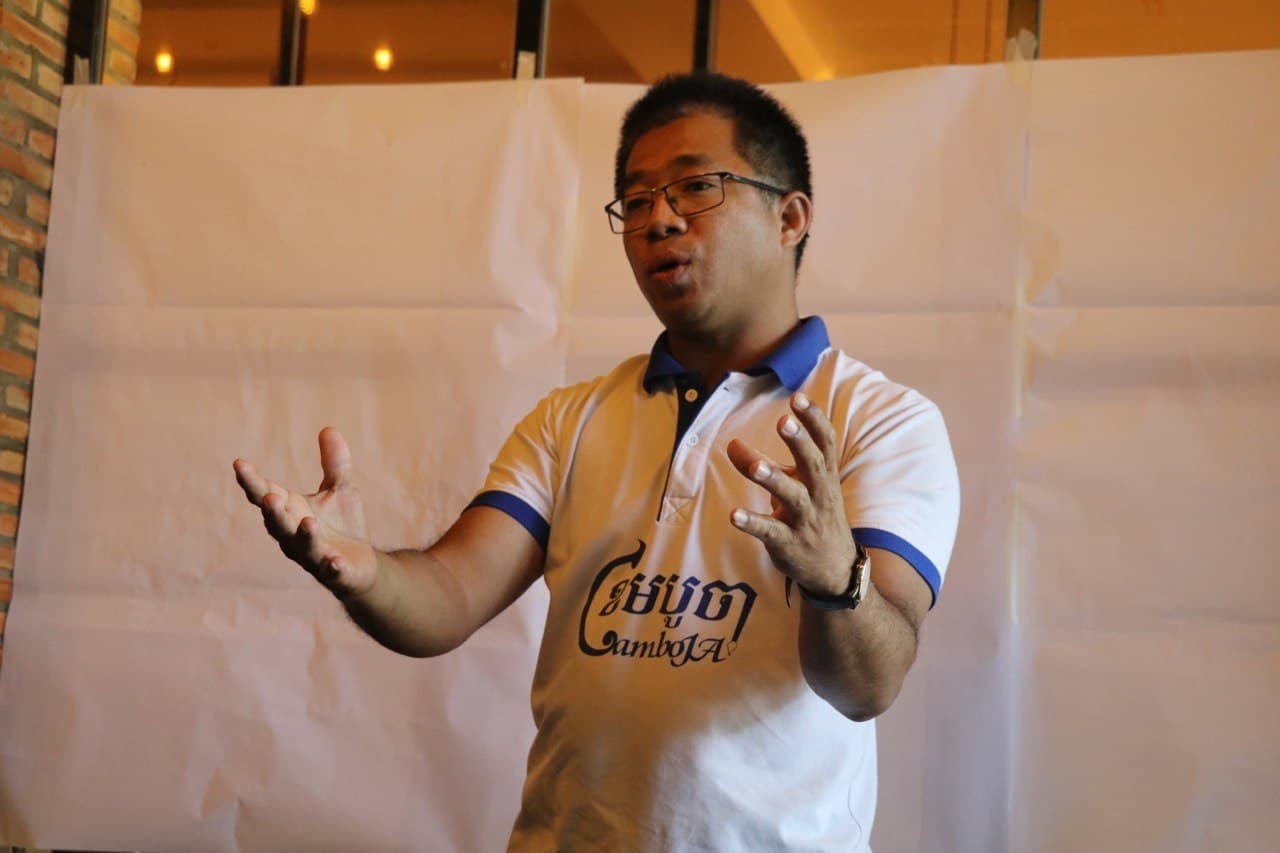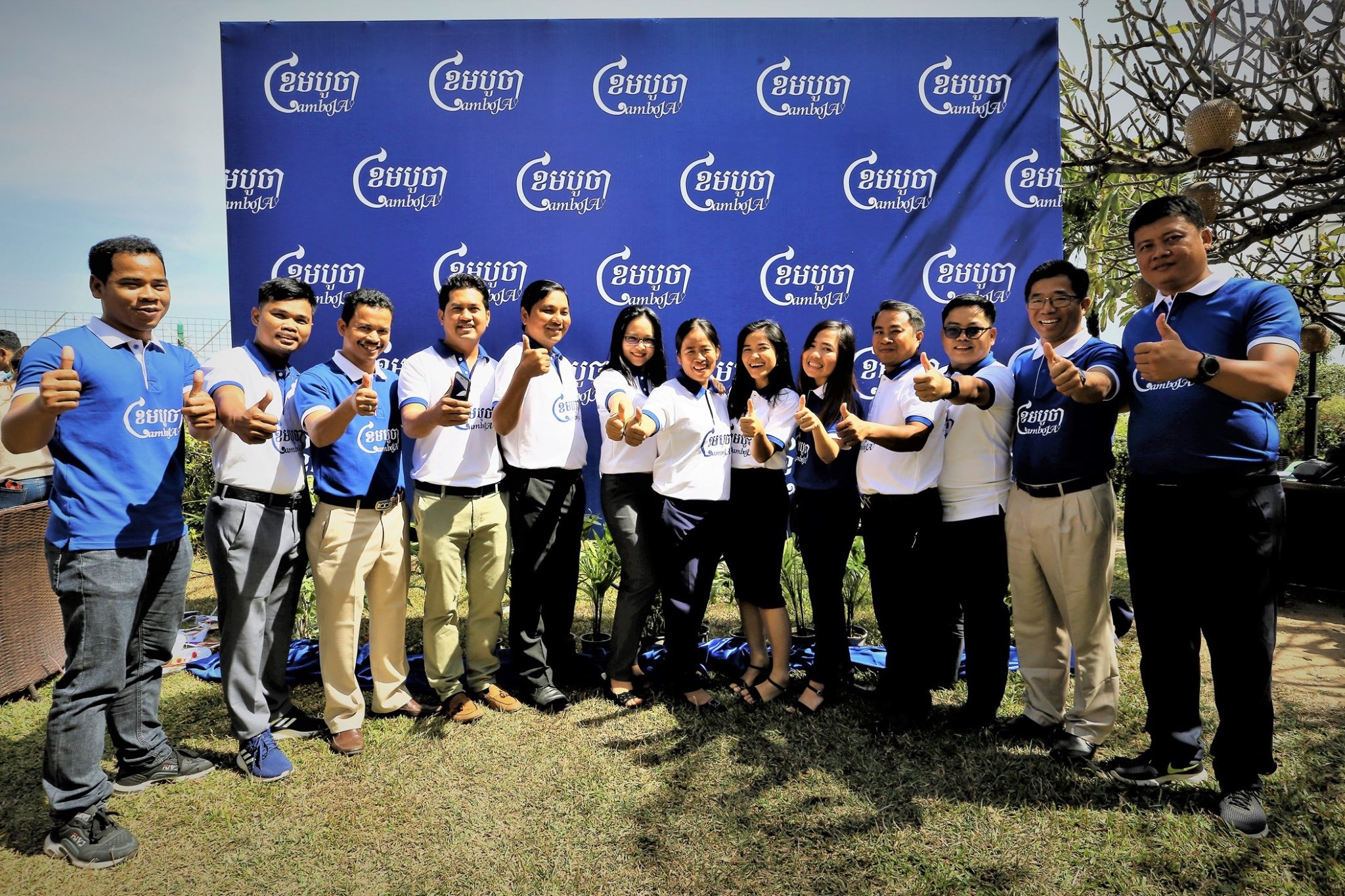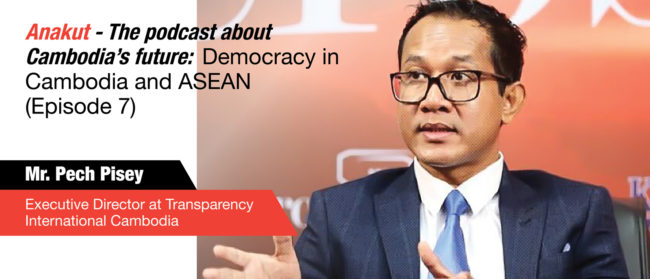‘Descent Into Outright Dictatorship’ read the front page headline of the final issue of the Cambodia Daily on September 4, 2017, as the newspaper succumbed to the pressure of a government harassment campaign.
When a second high-profile newspaper, the Phnom Penh Post, was sold to a Malaysian PR firm with links to Hun Sen’s government just eight months later, it seemed scrutinising media voices in Cambodia were successfully muzzled.
But while the Daily remains shuttered, the Post toothless, and journalists continue to be arrested with regularity, there remain signs of life for independent journalism in Cambodia – at least according to advocacy group Reporters Without Borders (RSF).
“The media landscape in Cambodia has become so bad – the emergence of CamboJA is a major breakthrough,” Daniel Bastard, Asia-Pacific director at RSF, told the Globe last week. “In this landscape where there is a lack of independence and a war on media – the establishment of CamboJA is a major phenomenon. It has allowed Cambodian reporters space to breathe.”
Last week, the Cambodia Journalists Alliance (CamboJA) capped off its first year in operation by being nominated, along with its news outlet CamboJA News, for the Independence Award at RSF’s 2020 Press Freedom Awards.
Established in September 2019 and now boasting more than 100 members, CamboJA joins journalists or investigative media from Russia, Brazil, Philippines, India and France across three categories – Courage, Impact and Independence – at this year’s awards. The only other Southeast Asia-based nomination was Margarita “Ging-Ging” Valle, a human rights investigative reporter from the Philippines.
Upon hearing that they had been nominated CamboJA’s executive director, Nop Vy, called it a vindication of the work CamboJA has done over the past 14 months.
“We are proud of our work and we are proud of the nomination, it shows we are not alone in our endeavours,” said Vy, former media development manager at the Cambodian Center for Independent Media, the parent organisation of outlet Voice of Democracy (VOD). Drawing its founding members from the likes of VOD, CamboJA’s board is composed of a director, two deputies and 12 sitting members. Funding comes through donations to the alliance’s work, as well as partnerships with NGOs in the country, leaving their content free to access.
“We noticed people from outside Cambodia observing, monitoring and supporting us – so there was happiness between us when we heard the news.”
CamboJA was born from the embers of the political and media crackdown around the Kingdom’s July 2018 national election, which saw the ruling Cambodian People’s Party dominate polls after the dissolution of the only viable opposition, the Cambodia National Rescue Party, eight months earlier.
Months leading up to the polls also saw the Daily close after receiving a $6.3million tax bill – rejected by the publishers as politically motivated – and Radio Free Asia’s Phnom Penh bureau lock its doors – also under a cloud of tax-related scuffles and an espionage case – within two weeks of each other.
Still, three years on, Cambodia’s highest court has yet to meaningfully move forward on or drop the espionage probe against former RFA reporters Yeang Sothearin and Uon Chhin, who stand accused of “collecting information for a foreign source” in their work for the US government-funded outlet.
A relaunched Cambodia Daily still operates outside of the country, but with its web page blocked domestically. Even those who do manage to access it are simply met with curated articles from other outlets – a far cry from the newspaper’s hard-hitting heyday.
“For me, the Daily ceased in September 2017,” Kevin Doyle, the paper’s editor-in-chief from 2004 to 2014, told the Globe. “I have only since seen links to stories from other outlets – that speaks for itself, really.”
It was in this oppressive post-election atmosphere that over 20 journalists from different media outlets met on 16 February, 2019, sharing their experiences of reporting in the Kingdom and looking to remedy the lack of independent media.

“There are a lot of accusations tabled against journalists and a strong air of political strictness in the country,” explained Vy. “With not much independent media, Cambodian professionals, journalists, reporters couldn’t find any organizations [to work for].”
After 15 became board members to steer the new network, they met weekly thereafter, setting the groundwork and filing for its association licence with the Ministry of Information on June 25 that year. After receiving accreditation on 9 September, the network of journalists – an alliance – was formed.
The Khmer Times and the Phnom Penh Post fulfil a role of appearing to produce professional journalism in Cambodia’s much-changed news media environment
CamboJA’s establishment – and nomination – is a small step forward in a mainstream media climate that today is largely controlled by, or in cahoots with, Prime Minister Hun Sen’s ruling CPP.
English-language daily, the Khmer Times, is owned by Malaysian businessman Mohan Tirugmanasam Bandam, a man who has close ties to not only the government, but also the country’s largest casino operator NagaCorp. The Post, once renowned for similarly scrutinising journalism as the Daily, was taken over in May 2018 by fellow Malaysian businessman Sivakumar Ganapthy. Ganapthy owns a public relations firm known to have worked on behalf of the Cambodian government – sparking a mass exodus of staff citing a since-vindicated concern about a move towards a CPP-friendly editorial stance.
“The Khmer Times and the Phnom Penh Post fulfil a role of appearing to produce professional journalism in Cambodia’s much-changed news media environment,” said Doyle. “Their production standards and volume of news produced by some very talented journalists, and distributed across multiple platforms, ensure that they have a commanding position in Cambodia’s domestic media market.”
Doyle, now a researcher and lecturer at Dublin City University, said that “both publications work within clearly defined lines”.
“The government is not so much held to account as its activities are placed on a commanding pedestal – voices critical of the government that do appear in stories are consigned to the deeply buried later paragraphs, if at all.”
As reliable and impartial news dwindles in the Kingdom, international outlets with one foot in the country, like RFA’s sister publication Voice of America, remain essential sources for more scrutinising coverage. In terms of local outlets, CamboJA sits among a select few – VOD and Thmey Thmey among them – struggling to maintain some notion of editorial independence. But even then, caution and self-censorship remain the name of the game as editors are all too conscious of invisible, unstated lines that must not be crossed.
In the latest World Press Freedom Index released by the RSF, Cambodia sits 144th in the world – behind South Sudan, the Philippines and Qatar. Earlier this month on 2 November – the International Day to End Impunity for Crimes Against Journalists – a statement was released by rights groups calling for an end to attacks against journalists in Cambodia. The statement lists at least 13 journalists who have faced court complaints for their coverage, as well as four media licenses that have been revoked during the Covid-19 pandemic for allegedly sharing fake news.
In the highest-profile case, Sovann Rithy, the founder and reporter at online publication TV FB, was targeted for quoting a speech made by Prime Minister Hun Sen in April stating that the government was unable to assist informal workers affected by the pandemic. He was convicted of incitement in October and given a suspended sentence.

But while inescapable limitations remain, it’s pushing back against this oppressive atmosphere that Vy believes caught the attention of an international audience.
“I think one of the things that impressed RSF is that it’s not expected that Cambodian journalists can stand by ourselves, can initiate independent journalist networks and challenge the authority of the government,” Vy said. “But we can do it, and we have succeeded in achieving this.”
In the context of these legal and physical threats to journalists, the organisation provides protection and support through its legal and advocacy support programme, helping those who have been taken to court on the basis of their reporting. A capacity building programme run by the organisation is also designed to support the next generation of Cambodian journalists who lack the training to conduct investigative reporting, or haven’t had photography lessons.
“We designed programmes to support professional journalists in Cambodia, both legally and editorially,” Vy said. “This programme monitors all of the cases of Cambodian journalists at court. In case they need any legal support, we can offer means to provide a lawyer – or the fee for a lawyer – to journalists.”
With a journalistic climate in Cambodia that encourages self-censoring and government friendly editorials, CamboJA adds another voice to the small but invaluable pool of outlets operating independently. Bastard, part of the committee that adjudicated on the nominations, emphasised that the emergence of new, free-thinking news organisations like CamboJA can help to buck the regional trend of “mainstream media … toeing the line of the government”.
“The emergence of CamboJA stands as an example for the rest of the region, in which you can see the further tightening of media restrictions and freedom by ruling regimes – the ‘Chinese model’,” Bastard said. “CamboJA is a very good counter example of that model in Southeast Asia.”


